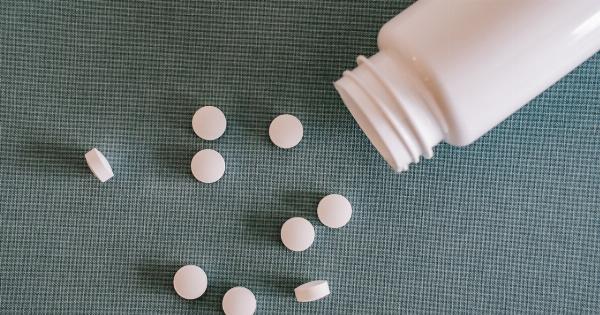Kidney stones, also known as renal calculi, are hard deposits that form in the kidneys. They are made up of minerals and salts that stick together and can vary in size.
Kidney stones can be extremely painful and can cause a range of symptoms including severe abdominal pain, blood in urine, and discomfort while urinating. While there are various factors that contribute to the formation of kidney stones, there are several steps you can take to protect your kidneys and reduce the risk of stone formation.
Read on to discover some useful tips to keep your kidneys healthy and stone-free.
1. Stay Hydrated
One of the most effective ways to prevent kidney stones is to drink plenty of water. Staying hydrated helps in maintaining dilution of urine, preventing the minerals and salts from clustering together and forming stones.
Aim to drink at least 8 cups (64 ounces) of water per day, or even more in hot climates or after engaging in physical activities that cause sweating. Remember, fluids other than water like tea, coffee, and soft drinks may not have the same hydrating effect.
2. Eat a Balanced Diet
Diet plays a crucial role in kidney stone prevention. It is important to consume a balanced diet that includes a variety of fruits, vegetables, whole grains, and lean proteins.
Avoid excessive consumption of foods that are high in oxalates, such as spinach, rhubarb, chocolate, and peanuts, as they can contribute to calcium oxalate stone formation. Limit your intake of animal protein, sodium, and refined sugars, as these can increase the risk of kidney stone formation as well.
3. Increase Citrus Intake
Citrus fruits like oranges, lemons, and grapefruits are rich in citrate, a compound that can help prevent kidney stones. Citrate binds to calcium in the urine, reducing the risk of crystal formation.
You can consume citrus fruits directly or opt for citrus juices, but be cautious with juice consumption as excessive sugar intake can have negative health consequences.
4. Limit Sodium Intake
High levels of sodium in the body can contribute to the formation of kidney stones. Excessive sodium intake can increase the amount of calcium in your urine, which in turn raises the risk of calcium stone formation.
Avoid processed foods, canned soups, fast food, and snacks that are high in sodium. Opt for fresh or homemade meals with low sodium options and season your food with herbs and spices instead of salt.
5. Get Adequate Calcium
Contrary to popular belief, reducing calcium intake is not recommended for preventing kidney stones. In fact, consuming adequate amounts of calcium is essential for kidney stone prevention.
Calcium binds to oxalates in the digestive tract, preventing their absorption into the bloodstream and reducing the risk of stone formation. Include calcium-rich foods like dairy products, leafy greens, and fortified plant-based milk in your diet.
6. Monitor Animal Protein Intake
Diets high in animal protein, such as red meat, poultry, and seafood, can increase the level of uric acid in your urine and raise the risk of kidney stone formation.
It is important to moderate your intake of animal protein and consider incorporating plant-based protein sources like legumes, tofu, and tempeh into your diet. Aim to replace some animal protein with plant protein to reduce the risk of stone formation.
7. Limit Oxalate-Rich Foods
Oxalate is a compound found in various plant-based foods that can combine with calcium in the urine to form kidney stones.
While it is not necessary to eliminate oxalate-rich foods completely, it is important to moderate their consumption and be aware of the oxalate content in specific foods. Some common foods high in oxalates include spinach, rhubarb, beets, almonds, and soy products.
8. Maintain a Healthy Weight
Obesity and excess weight are associated with an increased risk of kidney stone formation. Adopting a healthy lifestyle with regular exercise and a balanced diet can help you maintain a healthy weight and reduce the risk of kidney stones.
Losing weight gradually and incorporating physical activity into your daily routine can have a positive impact on kidney health.
9. Don’t Suppress the Urge to Urinate
When you feel the urge to urinate, it is important not to ignore or suppress it. Holding in urine for an extended period can lead to increased concentration of minerals and salts, facilitating the formation of kidney stones.
Make sure to empty your bladder regularly and avoid delaying urination whenever possible.
10. Seek Medical Advice
If you have a history of kidney stones or are experiencing symptoms associated with stone formation, it is essential to seek medical advice.
A healthcare professional can evaluate your condition, conduct necessary tests, and provide personalized recommendations to help prevent kidney stone formation or manage existing stones effectively.































